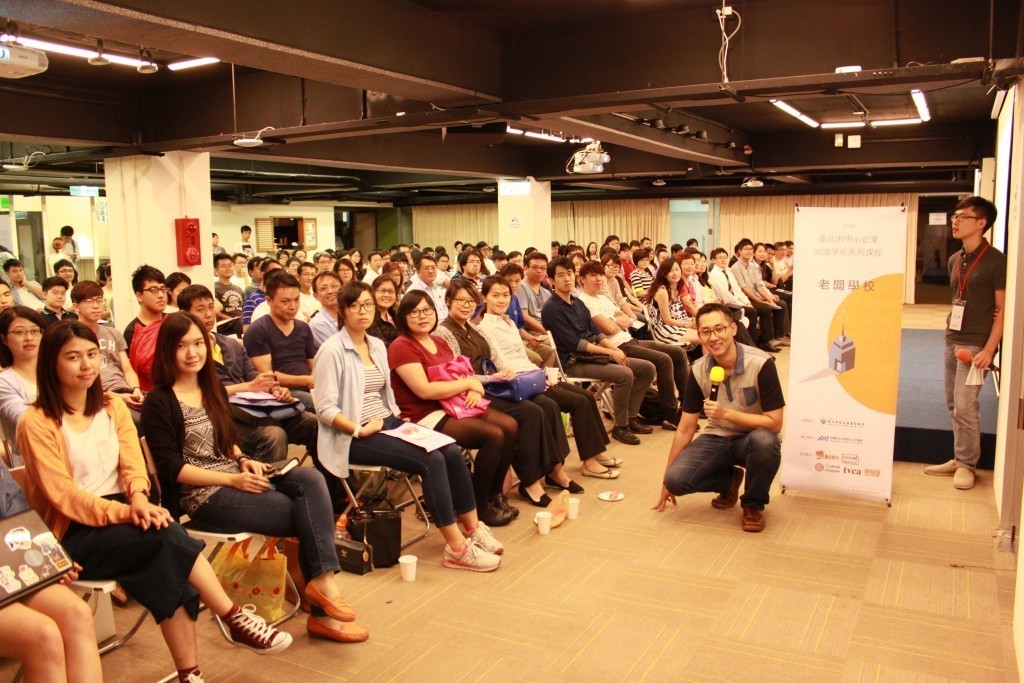Treasure Hunting in Big Data ? Whoscall and IBM Tell You How
How would you react when someone tells you that he’s going to make money off “big data”? Would you encourage him or start having doubts for him? “Data is the new oil” is what people have been saying these few years and even the McKinsey Global Institute agrees that there will be “exponential growth in data for the foreseeable future.” But, is big data reliable? How exactly do you plan a business model and profit from it? These are the questions we really care about, don’t we?
In the seminar hosted by the Department of Economic Development of Taipei City Gov, Peter Su, data science team leader of caller ID app Whoscall, asked his audience that if they were using the app Whoscall, and saw a satisfying amount of raised hands. “Not bad, we have improved once again.” He said with a smile.
Finding value in the unique data you have acquired
Whoscall is an app developed by Taiwanese startup Gogolook, and invested by Korean web giant NAVER since the end of 2013. Besides Taiwan, the app has also gained popularity in Hong Kong, Japan and Korea, filtering over 20 million spams and cold calls. The app is a great example of successful big data analysis.
“In order to find value in data, you have to clarify whether or not you’re the data owner yourself.” says Peter. Data owners are usually the government, financial firms, telecoms, websites or app developers, and Whoscall is an app developer. The other important role is called the data value driver. They don’t own any data themselves, instead they provide various tools and consulting or other kinds of value-added services through storage and data analysis.
Peter then proposed two criteria: the integrity and uniqueness of data. Integrity means the data you acquired is able to help you know your customers better, or collecting complete information about the wheres and whens of certain behaviors or targets. If this kind of data is private and not easily obtainable, it is unique. “Say, if I could obtain the telephone numbers of a group of billionaires, I could then bring profit to certain people, people who serve only high-income customers, and that makes this unique data valuable.”
Big data is being used everywhere, namely LinkedIn, Facebook friend suggestions, those Google search corrections you always get, these are all generated by big data analysis. The thing is, a start-up usually doesn’t have enough money to collect such massive data. Peter said “uniqueness” would be a better way to start, or from the perspective of a data value driver, to work on infrastructure, data storage, analysis, visualization or consulting services.
As for how Whoscall gathered over 700 million phone calls of database, Peter told us that most of them are from the users, and he also said that there are basically two phases in the growth of Whoscall:
1. Get data from data
Using the methods of cold start and crowdsourcing, while the data volume was still small, Whoscall was able to list all the sources of incoming calls with the easiest search mode. As the number of users grows, they are able to report harassing calls by themselves, the data then grows rapidly all thanks to the wisdom of the crowd. Israeli GPS app Waze adopts a similar model, first by acquiring free geographical data, then let users report traffic, acquiring more data. In 2013, Google purchased Waze with 1.1 billion US dollars for its incomparable amount of 50 million active users, and always up-to-date real time traffic reports.
Besides doing it manually, Peter advised start-ups to look for free databases from the government, or third party open APIs to jump start their first data.
2. Improve your service through data analysis
Whoscall analyzes users’ behaviors to compare the difference in data status between harassing calls and regular calls. Peter explained that, numbers that harass people are almost always outgoing, and seldom receive calls. Even if users don’t report these numbers, they will still be calculated and filtered out through statistical modeling. Companies are able to provide better user experience and services with such data analysis.

To quote Mayor Ko of Taipei City, “What KPI are you looking at?”
Big data changes very quickly, so are the ways they are being exploited. Senior advisor Passion Hsu (許珮薰) from IBM Global Business Services said that the amount and variety of today’s data have grown a lot more than the past, and calculation has been fast too. Big data is being applied to various industries. “For example, in the past we could easily learn who someone called, and who called him, but now we can also learn who someone’s contacts are calling, and build a complete telephone network, to find out who the important targets are and how much you might lose if you can’t get ahold of them.”
According to Passion Hsu, there are two ways you should do business, you either reduce the costs and increase your operating efficiency, or extend values.
1. Cost reduction and operating efficiency
Hsu took the collaboration of IBM and HONDA as an example. After analyzing the data from HONDA, they learned about the battery conditions and charging methods of the electric vehicles, and used that to remind customers to schedule the next maintenance. Therefore they were able to control the quality and sales of their batteries, and manufacturers could also adjust production speed accordingly, thus increase efficiency.
2. Value extension
Besides monitoring railways, JR also gathers information on trains’ punctuality. This kind of data helps them explore new business models. Once they have enough data, shops in the station can then promote themselves to the tourists by giving out coupons, and cross-industry cooperation creates values.
There are three steps to achieve success with big data: Build culture, invest resources and integrate actions. Hsu said, 40% of IBM’s clients wants to get their hands on big data, but “didn’t know where to start.” The lack of resources and talents were less of their worries. Most problems come from organization, not data itself. It’s all about the company’s attitude toward data analysis. Also, to quote Mayor Ko of Taipei City, “What KPI are you looking at?” When choosing the theme and style of your analysis, you should make sure that the big data you want is consistent with your company’s original plans and goals, and then set the corresponding KPI. She added, “Find the right factors that drive values for each item based on financial implications, and then set your KPI, is what we always suggest our clients.”
Big data vs. Privacy
Someone in the audience asked whether Whoscall’s existence would bring any discontent to advertisers and sales people. Peter replied humorously. “Yes, and that’s why Gogolook doesn’t have a street address.” He also explained that Whoscall brings balance to advertisers and users. People choose this app because they don’t have the need for advertisements, and if a user wants a car loan he would still answer the call from a car loan number even when the app has already prompted him. Whoscall merely gives the choice back to the users.
In a nutshell, big data has reset the rules. It might have optimized user experience and created new business models, but people are worrying about privacy. Hsu said, sometimes privacy and better service contradict each other. Consumers usually want both but they really can’t. Companies have to choose between conscience and application maximization. She also reminded us, that Facebook is extremely popular in Taiwan, and if you set your texts and photos as “Public,” you’re granting everybody the access to them. You should change your settings if you are worried about privacy.
There’s no shortcut to big data. Talents are the most important.
Peter concluded that, in order to turn big data into a working business model and profit from it, you have to find the MVP first. “There is MVP in everything, big data is no exception. Don’t build a rocket when you are short on resources. Start from easy tools for your data analysis, consult experts or go from offline analysis. One step at a time.” However, service optimization can wait, but talents can’t. If you offer bananas, you get monkeys.
“There’s no shortcut to big data. Talents are the most important. You have to invest great resources to find great talents. Only then can you do things right.”
中文版連結
Cover photo: PanX










留言討論